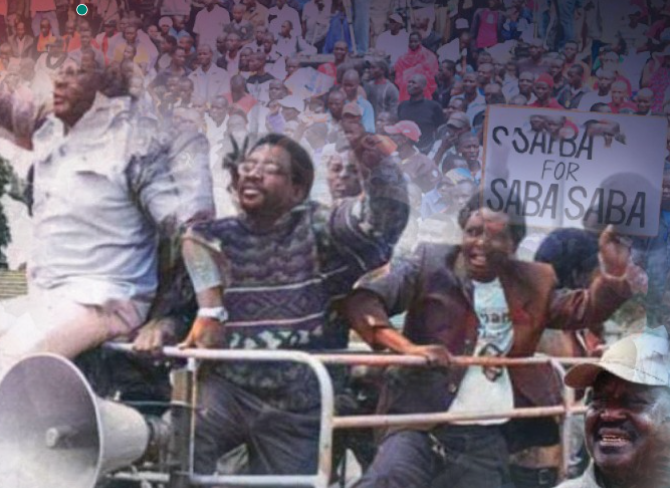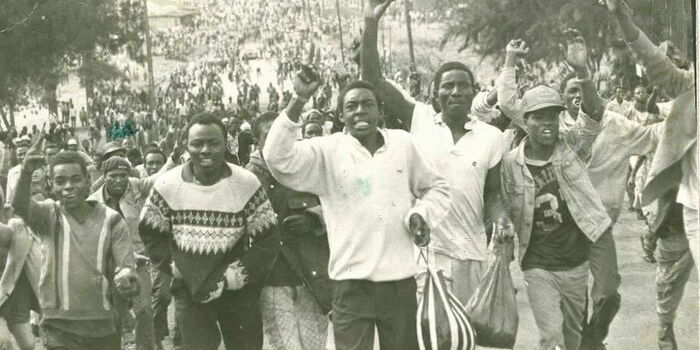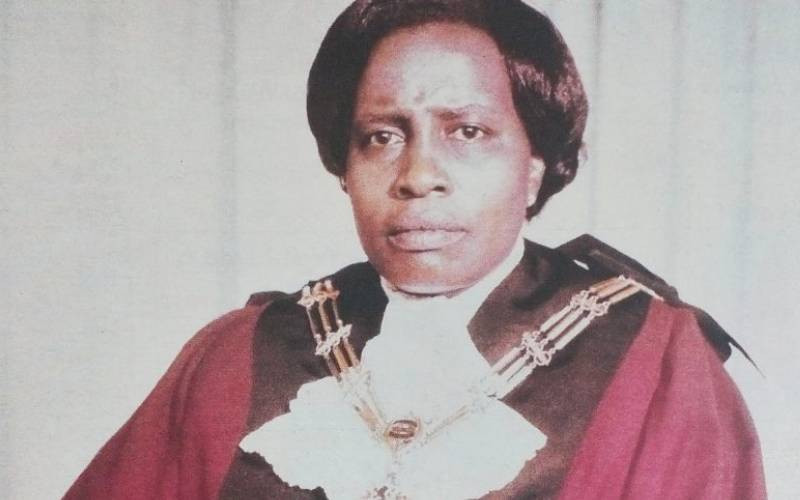EXPLAINER: Understanding Saba Saba and its relevance in Kenya's democracy today

Understanding Saba Saba, its relevance in Kenya’s democracy
On July 7, 2025, Kenya will commemorate Saba Saba Day, a significant date in the nation's history.
This day, meaning "seven seven" in Kiswahili, marks the anniversary of the 1990 pro-democracy protests that challenged the autocratic regime of President Daniel arap Moi.
Over the years, Saba Saba has evolved into a symbol of resistance, democratic aspirations, and civic engagement.
In 2025, the day holds renewed relevance as Kenyans continue to grapple with issues of governance, human rights, and national identity.
Historical context
The origins of Saba Saba Day trace back to July 7, 1990, when opposition leaders Kenneth Matiba, Charles Rubia and Raila Odinga organised a demonstration in Nairobi's Kamukunji grounds.
They were demanding political reforms, including the introduction of multi-party democracy and an end to human rights abuses.
Despite the government's efforts to suppress the movement, including the arrest and detention of key organisers, thousands of Kenyans defied the ban and participated in the protests.
"It was the day people came out in open defiance of a brutal dictatorship… it was a day we reclaimed our voice," Human Rights activist Wanjira Wanjiru said.
The aftermath of the 1990 protests led to significant political changes.
In December 1991, President Moi announced the repeal of Section 2A of the Constitution, which had entrenched Kenya as a one-party state.
This move paved the way for multi-party elections in 1992 and expanded the democratic space in the country.
Saba Saba's evolution
Since 1990, Saba Saba Day has been observed annually, serving as a reminder of the struggles for democracy and human rights.
Civil society organisations, human rights defenders and ordinary citizens have used the day to highlight ongoing issues such as police brutality, corruption and the high cost of living.
In an interview with Citizen TV in 2023, Political analyst Njeru Kathangu said, "the spirit of Saba Saba was to push for freedoms and democracy, the spirit of this Saba Saba is to push for survival; it is not very different, only that the environments are different, situations different and the people involved slightly different".
For instance, in 2021, protests erupted in Nairobi's Central Business District (CBD), with demonstrators demanding an end to police killings, improved healthcare, and better living conditions.
In 2024, the day was marked by a memorial concert at Uhuru Park, commemorating those who lost their lives during the recent Reject Finance Bill protests.
The event featured performances by artists like Juliani, Khaligraph Jones and Eric Wainaina, reflecting the continued relevance of Saba Saba in advocating for social justice and accountability.
Saba Saba in 2025
As Kenya approaches the 2025 Saba Saba Day, the spirit of the 1990 protests remains alive.
Analysts note striking similarities between the Gen Z-led demonstrations of 2024-2025 and the original Saba Saba protests, particularly in their demands for better leadership, accountability and an end to state repression.
Drawing parallels with the original Saba Saba, political historian Mutuma Kithinji told DW that, "the striking similarity between the Gen Z protests of 2024–25 and the Saba Saba protests of the '90s is that both were centred on a clamour for better leadership".
However, the landscape has evolved. The 2025 protests are characterised by a decentralised, grassroots movement without defined leaders or ethnic affiliations.
This shift reflects a broader trend towards civic engagement, where ordinary citizens, especially the youth, are taking the lead in advocating for change.
Significance of Saba Saba Day
Saba Saba Day serves multiple purposes in Kenya's socio-political landscape.
This includes commemoration of past struggles, as it honours the sacrifices made by those who fought for democratic reforms, ensuring that their efforts are not forgotten.
Saba Saba serves as a platform for advocacy by providing an opportunity to raise awareness about ongoing issues such as corruption, unemployment, and human rights abuses.
It is an expression of civic engagement as it encourages citizens to actively participate in the democratic process, reinforcing the idea that change is possible through collective action.
Additionally, it is a space for the promotion of national unity by focusing on shared goals and values. Saba Saba Day fosters a sense of national identity and solidarity among Kenyans.












